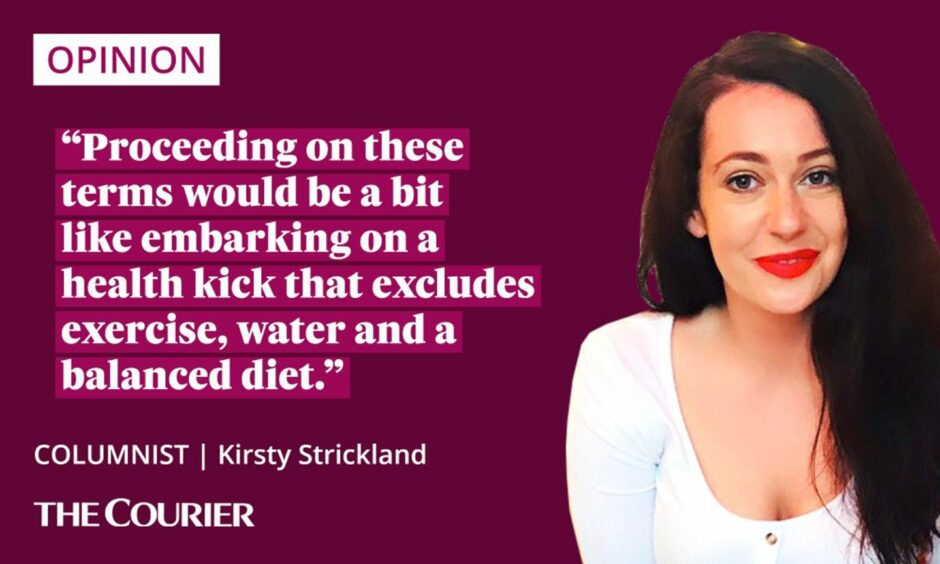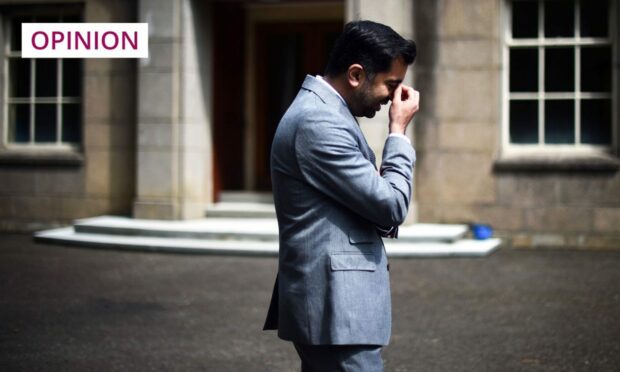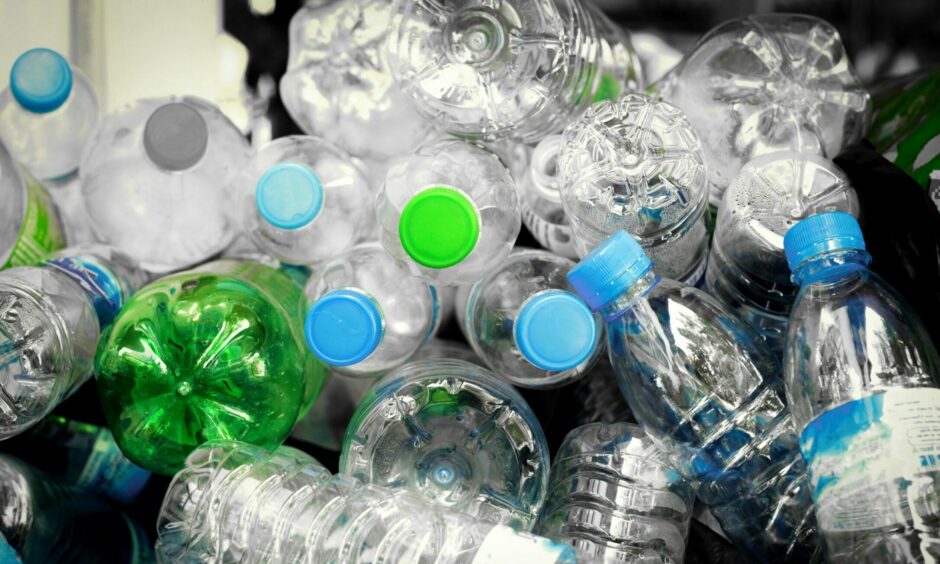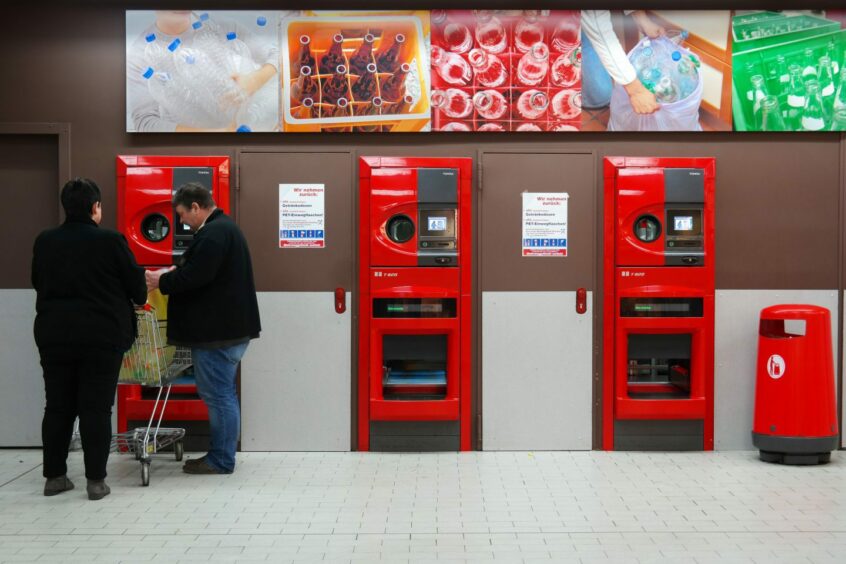The deposit return scheme stooshie is a thoroughly un-sexy (and therefore, distinctly Scottish) political row.
It might be a hot topic on Twitter, but I’ve seen no evidence that the wider public is particularly enthused by it.
That doesn’t mean it’s not important, of course.
But MSPs are paid handsomely to deal with the intricacies of policy implementation. And we’d quite like them to get on with it.
If you’ve been too busy admiring the new blooms of spring, or trying desperately to avoid Succession season finale spoilers, I’ll try my best to recap the events thus far.

The aim of the Scottish Government’s deposit return scheme (DRS) is a noble one.
It has been designed to increase the number of single-use drinks containers that are recycled.
Under the plans, 20p would be added to the cost of single-use cans and bottles. This would then be refunded if the container is returned to the retailer.
In my view, the scheme should go ahead, if only to allow youngsters today to enjoy the 90s thrill of taking bottles of Irn Bru to the corner shop to exchange for sweeties.
Business and politics concerns behind Scotland’s deposit return scheme delay
I should declare an interest here. My daughter is an eco-rep at her school and she reminds me on a regular basis that planet Earth is in deep trouble.
And recycling is unquestionably a good thing – so why has the deposit return scheme proved so controversial?
The devil, as always, is in the detail.
The Scottish Government has faced criticism not for the scheme itself – which has been implemented in other countries without fuss – but for how it went about it.
Some in the business community have repeatedly raised concerns about how the deposit return scheme will be administered and expressed fears that it could have a negative impact on smaller drinks manufacturers and businesses.
These criticisms over the implementation of the scheme were a focal point during the SNP leadership contest.
It was due to start in August, but the launch was delayed to give parliament more time to iron out the details.
However, Westminster is involved now. Which means the squabbles over the deposit return scheme have been elevated to something approaching constitutional crisis territory.
Once again, the UK government’s actions mirror those of the drunk friend on a night out who always manages to turn a disagreement about queue jumping into a multi-person brawl in the street.
While politicians squabble the climate crisis goes on
Humza Yousaf has accused the UK Government of attempting to sabotage the scheme, after it agreed it could go ahead, but only if glass wasn’t included in the plans.
Wales has a similar scheme (which includes glass) that is set to be rolled out in 2025.
But because the Scottish Government wanted to implement theirs sooner – and because we are stuck in this perpetually weird supposed ‘union of equal nations’ – the Scottish Government had to ask the UK Government for an exemption to the Internal Market Act so its plans could go ahead.
And that’s how we have found ourselves in this ‘minus the glass’ stand-off.
Surely proceeding on these terms would be a bit like embarking on a health kick that excludes exercise, water and a balanced diet.
The Westminster Government is not just trying to scupper the Deposit Return Scheme – they're trying to undermine devolution.
It's also really poor for the environment. If we don't include glass that's 600 million bottles that won't be removed from our streets, beaches and parks. pic.twitter.com/BXWFWMM7I5
— Humza Yousaf (@HumzaYousaf) May 28, 2023
The UK Government claims it has made this intervention so the scheme “aligns’’ with similar schemes in other nations.
The Scottish Government, unsurprisingly, takes a different view.
Humza Yousaf says the compromise would exempt 600 million glass bottles.
The UK Government is not just trying to scupper the deposit return scheme, he insists: “they are trying to undermine devolution”.
There are now real fears that the scheme might be scrapped entirely. Which kind of suggests everyone might be missing the point here.
During the upcoming climate apocalypse, we’ll be rowing down the flooded streets on broken patio furniture and bartering seeds for sun cream while Westminster and Holyrood continue to fight over who has constitutional control over glass bottles of cherryade.













Conversation